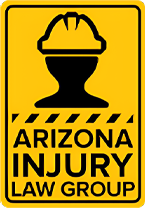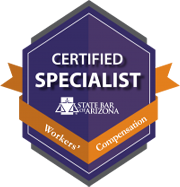Looking Out for Your Fellow Workers is Part of Keeping a Safe Workplace

Having good work ethics and always showing up for work even when feeling under the weather, is important for your job record. Yet, there are times when this can be pushed too far. A worker may feel that he or she should continue working regardless of feeling faint, having slight chest pains, enduring cold or possible flu symptoms.
Know Your Working Team Members Well
When you have been working together as a team on a shift, you get to know the members of your group well. This may include sharing time together outside of work where you visit each other’s homes and meet the family members. You might also learn that one or more team members have special issues like Diabetes I or II, or another has issues with heart murmurs. Another team member may have joint issues in one arm or shoulder.
Keeping an Eye on Team Members While at Work
Always know what physical issues your teammates have as something might happen, and you might need to call attention to that person if they appear to be having a medical issue. When working, people are fairly engrossed with what they are doing. It is important to occasionally observe others, particularly if working with any kind of heavy machinery or other mechanical processes where something could go wrong quickly.
- Diabetes Issues
While a manager may oversee what everyone is doing, knowing what unusual symptoms in someone’s actions or physical appearance are happening, could mean the difference between life and death, not only for that worker but for other teammates. People with Diabetes (I and II) may exhibit extreme tiredness or could also have outbursts of negative behavior because their blood sugar levels are off.
The solution may be as simple as having them take a break for a small snack to restore their sugar levels. Most diabetics also carry their testing kits with them (Diabetes I and II) or may carry their insulin shots too (Diabetes I). Once they have stabilized, they are ready to get back to work.
- Signs of a Heart Attack
Your other working teammate has occasional chest pains, although they are minor. The doctor has cleared him or her for work. If the worker starts complaining of nausea, heartburn, indigestion, along with stomach pain or feels dizzy and lightheaded, that worker should stop working immediately and go to the company’s medical station.
These are signs of a potential heart attack and anyone, at any time, can be susceptible to having one. Even young people may have one for unexplained reasons until they can be fully checked out by a doctor.
When Working Conditions are Extreme
- Cold Weather Issues
Some working conditions can be extreme when jobs are conducted outside, and the weather is either extremely cold or extremely hot. In cold-weather jobs, the company should ensure that all workers have the right clothing that keeps workers warm, including appropriate footgear, the right type of gloves for the work, and face coverings, when needed.
There should always be a designated area that workers can go where they can warm up again and have a hot drink. Workers can also bring their own thermos with coffee or tea.
- Hot Weather
Always have cool water available, as well as beverages with electrolytes included, which are expended when a person sweats heavily while working under a hot sun and high temperatures. Workers should always have a designated place to go for cooling down and drinking cool liquids.
Signs of possible heat stroke are:
- Dizziness and possible confusion or disorientation
- Excessive fatigue, profuse perspiration, and then a lack of perspiration
- Muscle and/or stomach cramps, and
- Headaches, nausea, vomiting, and diarrhea.
If you have been working in unsafe situations, call us at once for a consultation. We can help you. 602-346-9009
Get Help Today
Call Immediately For A Free, No Obligation Consultation And Let Us Help You Put Your Life Back On Track. Let Us Help You
Regain Normalcy And Stability Again. We Want To Help You Get The Benefits You Need And Deserve!


